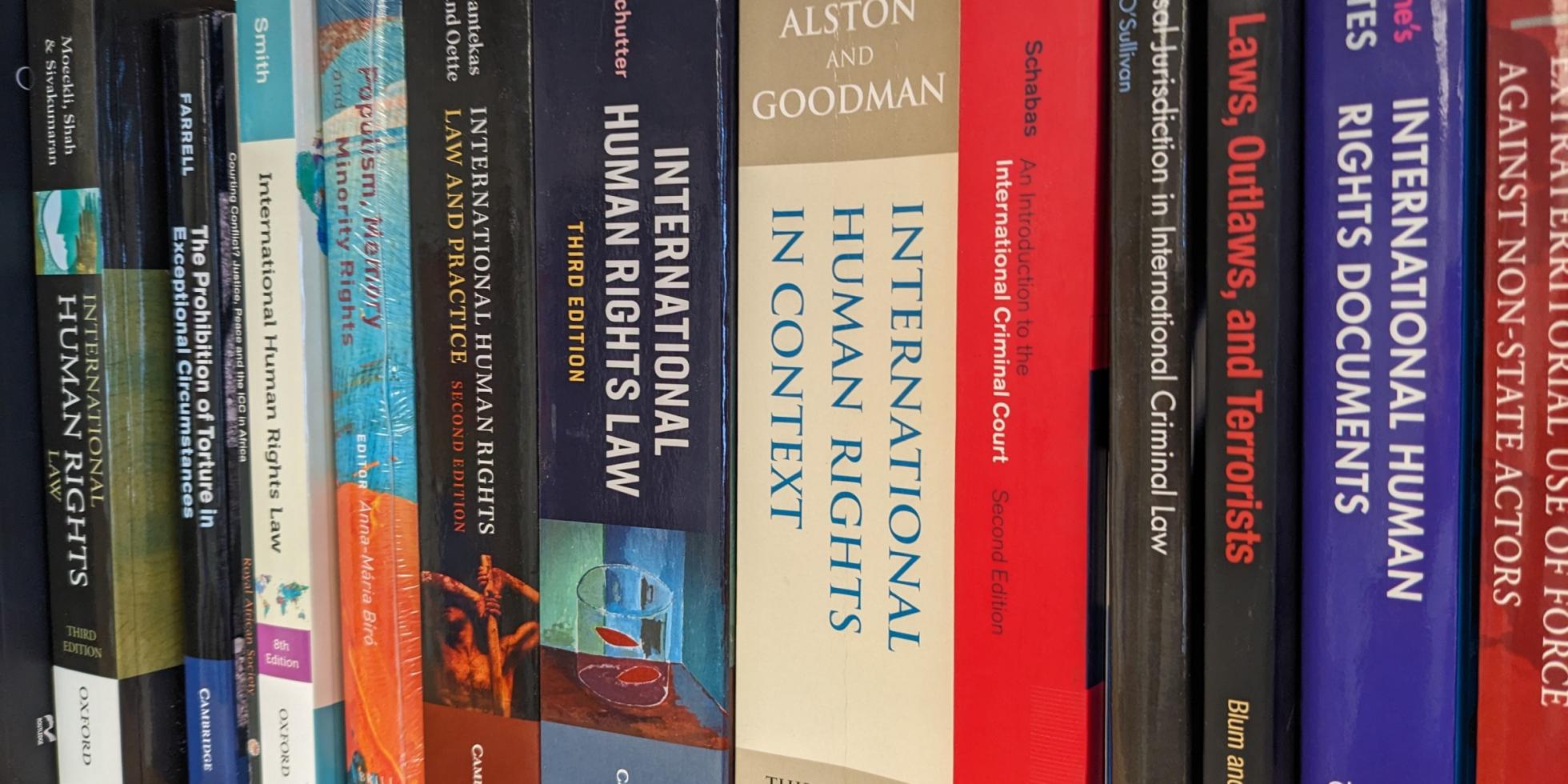The virtual human rights library brings together resources from multiple libraries and information services, both internal and external, to create an online hub dedicated to the study of human rights. This curation is unique in its interdisciplinary concerns and focuses on writings and research from social sciences, humanities, and law.
The virtual library is continually updated with the latest academic research in issue areas, as well as with relevant films, recorded conversations, and other forms of media.
Please Note:
The Virtual Library is usable by all visitors, but the hyperlinks to materials listed are for UChicago community members with a CNet ID and password.
Please direct feedback and suggestions to Kathleen Cavanaugh.
For technical assistance, email pozenhumanrights @ uchicago.edu.
Searchable Database
Click into the dropdowns to select the disciplines, keywords, and media type for your search, and then hit "Apply."
Meurtres pour mémoire
Paris, octobre 1961 : à Richelieu-Drouot, la police s'oppose à des Algériens en colère. Thiraud, un petit prof d'histoire, a le tort de passer trop près de la manifestation qui fit des centaines de victimes. Cette mort ne serait jamais...
Minority Rules: The Miao and the Feminine in China's Cultural Politics
Minority Rules is an ethnography of a Chinese people known as the Miao, a group long consigned to the remote highlands and considered backward by other Chinese. Now the nation’s fifth largest minority, the Miao number nearly eight million people...
Mosquito Empires: Ecology and War in the Greater Caribbean, 1620–1914
This book explores the links among ecology, disease, and international politics in the context of the Greater Caribbean - the landscapes lying between Surinam and the Chesapeake - in the seventeenth through early twentieth centuries. Ecological changes made these landscapes...
Mountains of Blame: Climate and Culpability in the Philippine Uplands
Swidden agriculture has long been considered the primary cause of deforestation throughout Southeast Asia, and the Philippine government has used this belief to exclude the indigenous people of Palawan Island from their ancestral lands and to force them to abandon...
Multidirectional Memory: Remembering the Holocaust in the Age of Decolonization
Multidirectional Memory brings together Holocaust studies and postcolonial studies for the first time. Employing a comparative and interdisciplinary approach, the book makes a twofold argument about Holocaust memory in a global age by situating it in the unexpected context of...
My Bondage and My Freedom
Born into slavery in 1818, Frederick Douglass escaped to freedom and became a passionate advocate for abolition and social change and the foremost spokesperson for the nation's enslaved African American population in the years preceding the Civil War. My Bondage...
My Own Words
My Own Words "showcases Ruth Ginsburg's astonishing intellectual range" (The New Republic). In this collection Justice Ginsburg discusses gender equality, the workings of the Supreme Court, being Jewish, law and lawyers in opera, and the value of looking beyond US...
Nationalism, Antisemitism, and Fascism in France
This wide-ranging work confronts the complex question of nationalism in France in its various permutations--myths, obsessions, possibilities, and dangers. French nationalism has always been a double-edged sword, from its beginnings in the French Revolution through the two Napoleonic empires, Boulangism...
Native American DNA: Tribal Belonging and the False Promise of Genetic Science
Who is a Native American? And who gets to decide? From genealogists searching online for their ancestors to fortune hunters hoping for a slice of casino profits from wealthy tribes, the answers to these seemingly straightforward questions have profound ramifications...
Necropolitics
In Necropolitics, Achille Mbembe theorizes the genealogy of the contemporary world, a world plagued by ever-increasing inequality, militarization, enmity, and terror as well as by a resurgence of racist, fascist, and nationalist forces determined to exclude and kill. He outlines...

